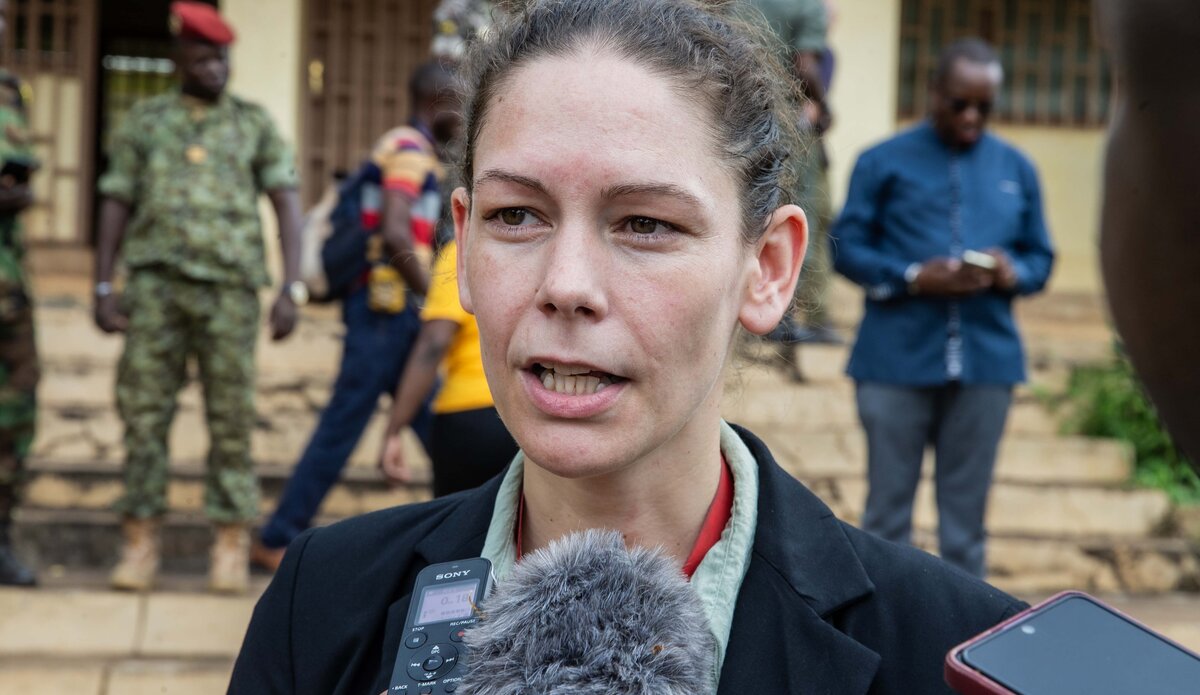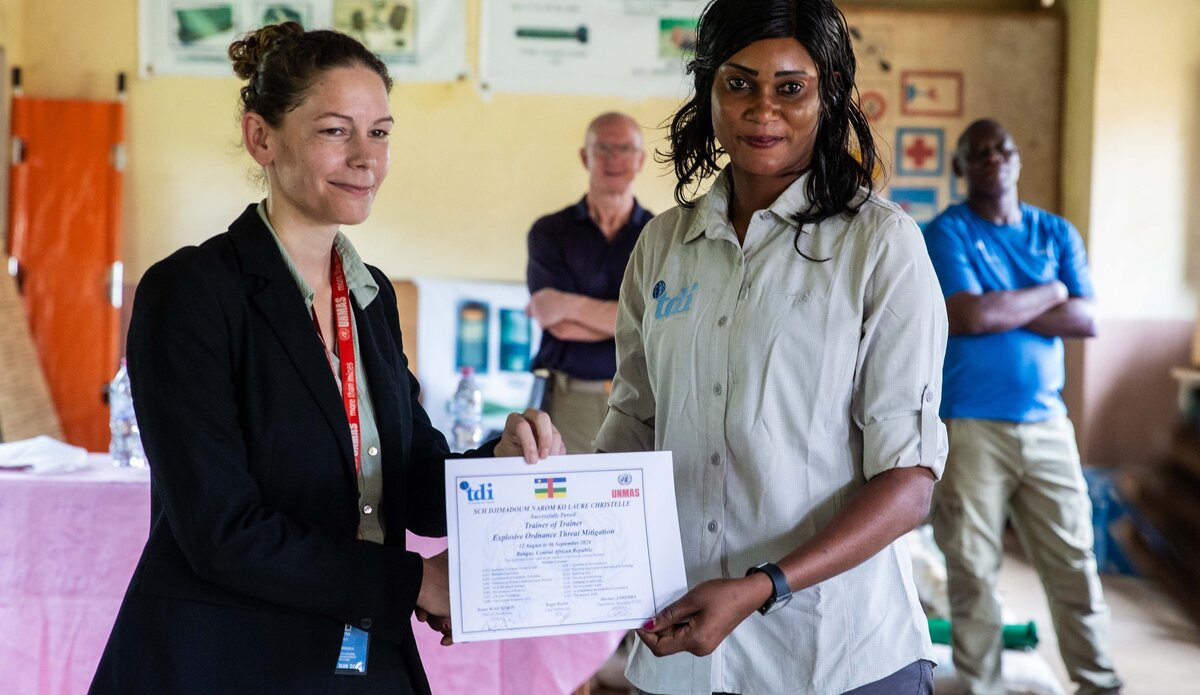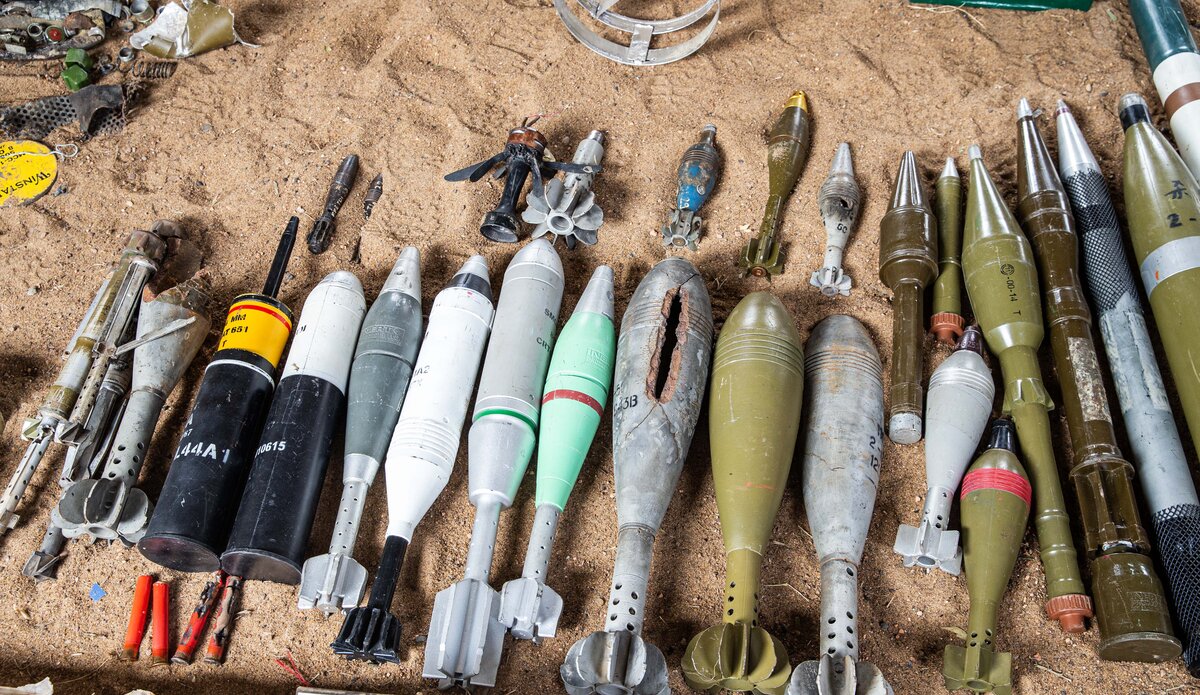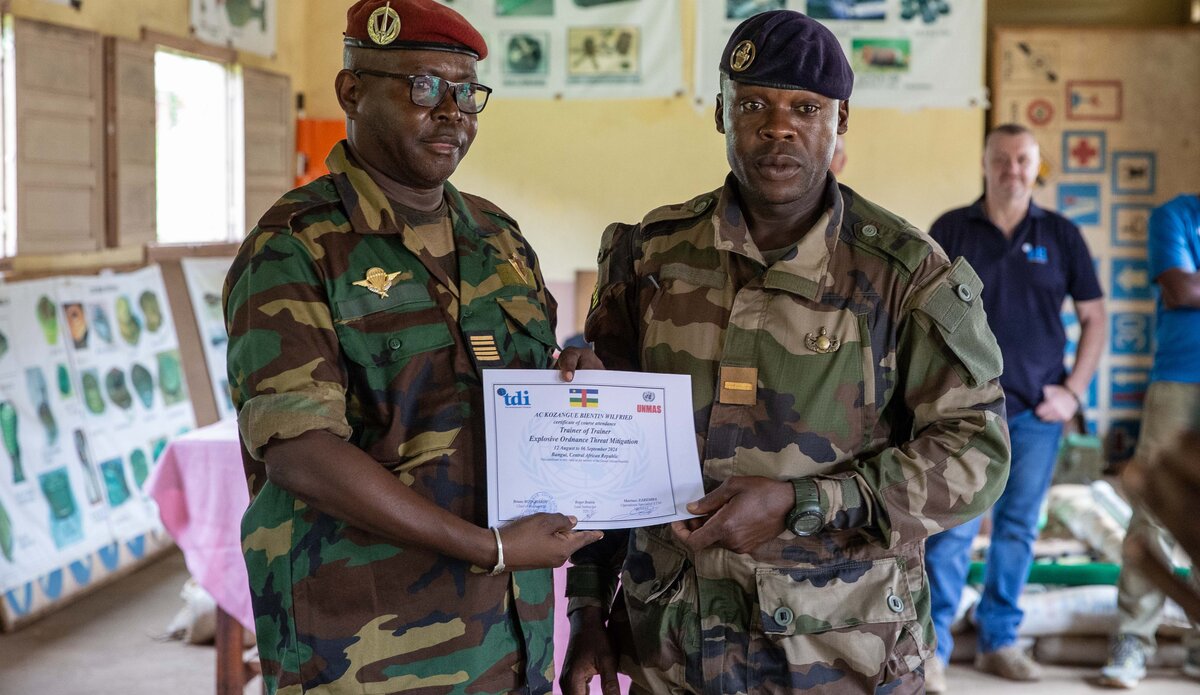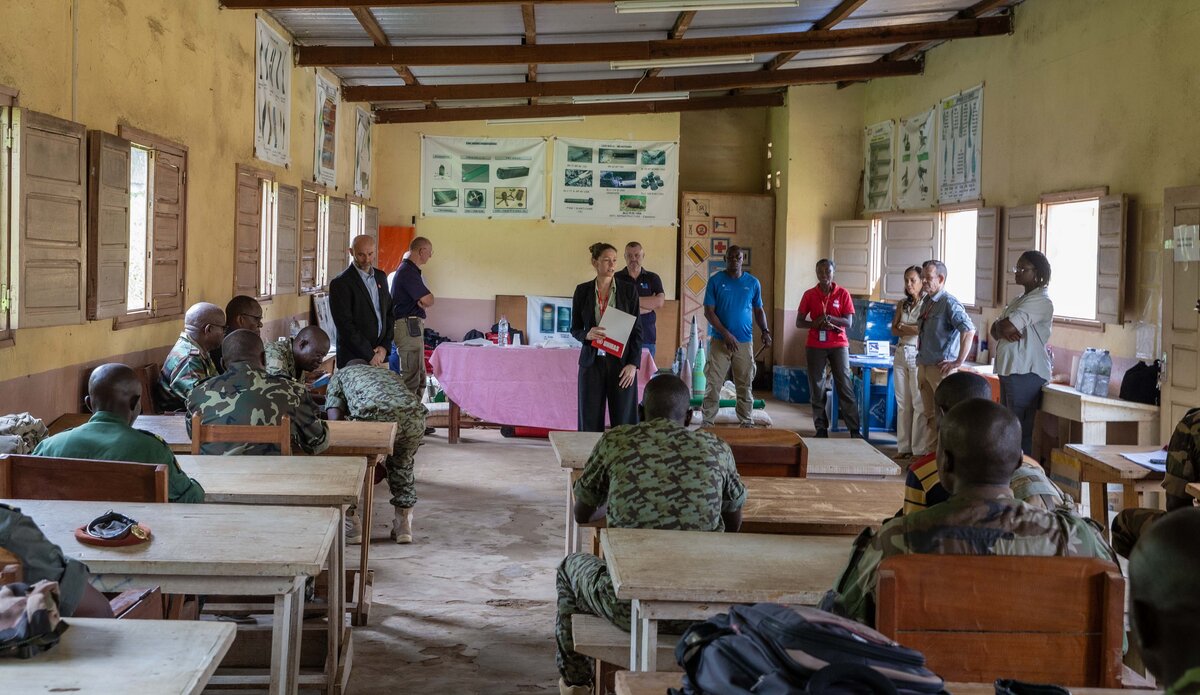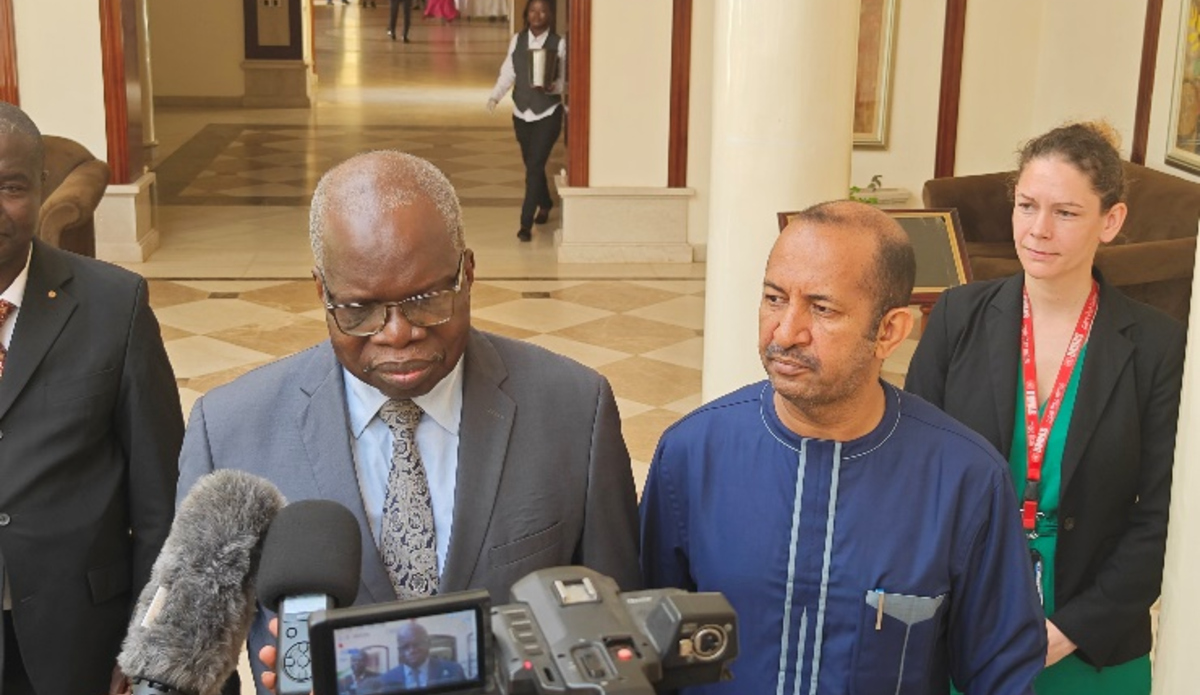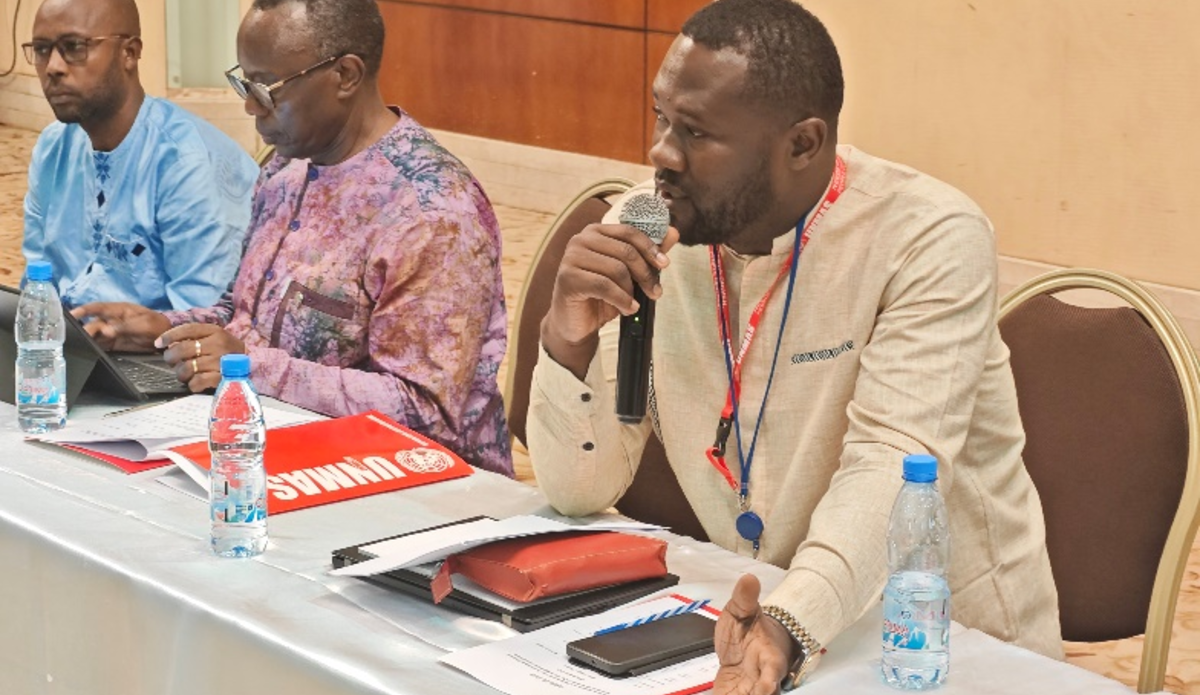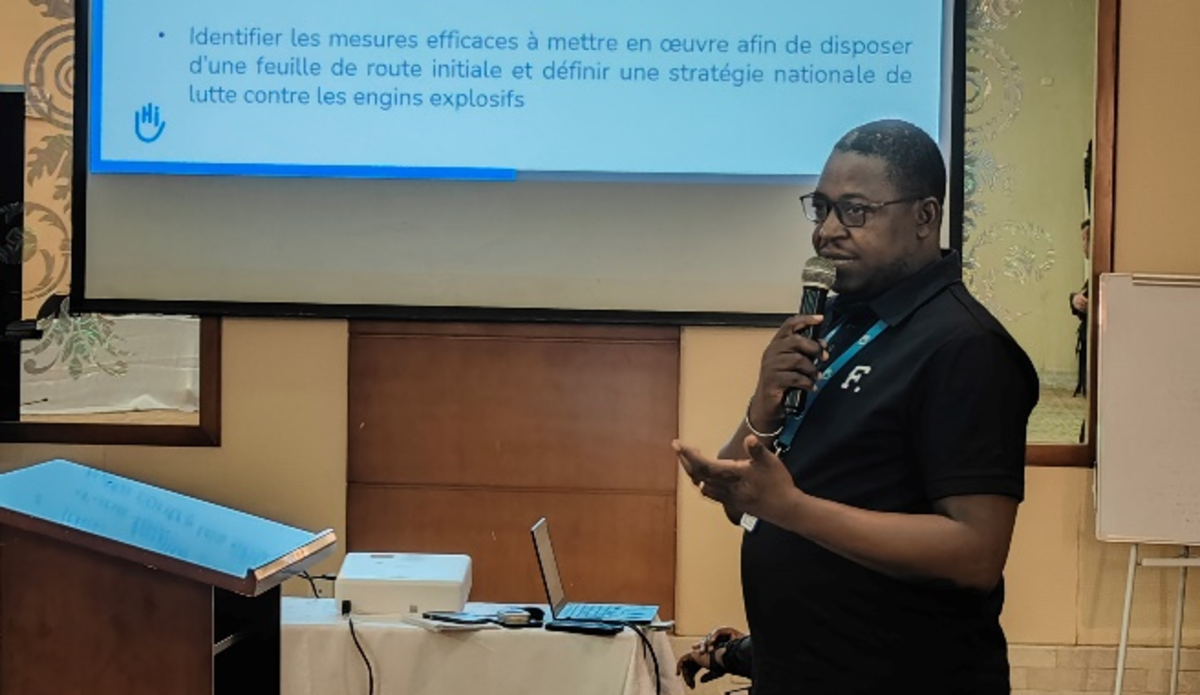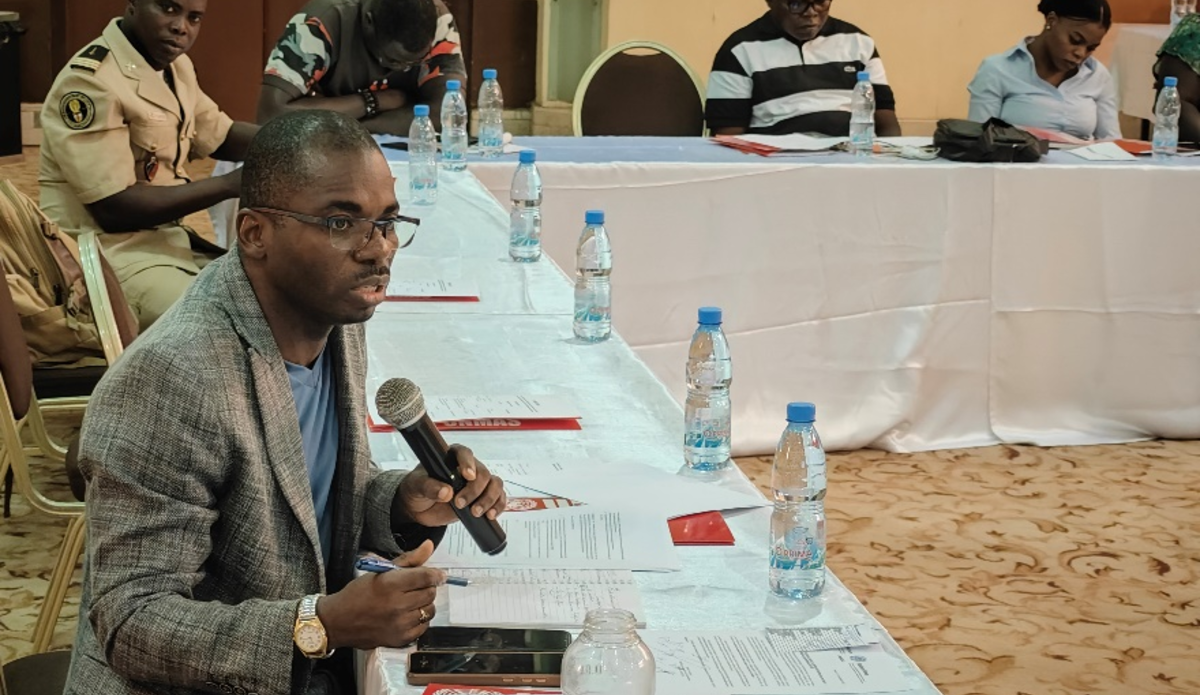MINUSCA, through the United Nations Mine Action Service (UNMAS), plays a pivotal role in supporting national capacities to address the explosive ordnance threat in the Central African Republic. In alignment with MINUSCA's mandate, UNMAS focuses on building sustainable solutions and strengthening local ownership of mine action interventions.
To achieve the mine action priorities as defined in the MINUSCA mandate, UNMAS recently achieved two major milestones, demonstrating the progress and continued efforts in securing a safer future for the country.
On 11 September 2024, MINUSCA, through UNMAS, celebrated the graduation of the first cohort of 12 national Explosive Ordnance Threat Mitigation (EOTM) trainers. This significant milestone marked the successful completion of a rigorous four-week Training-of-Trainers (ToT) course, delivered by UNMAS specialists. The course was specifically designed to equip the Central African Armed Forces (FACA) with the skills necessary to independently conduct basic EOTM training for their units, thus fostering the country's capacity for autonomous explosive ordnance disposal and management.
Sophie Van Royen, Chief of Mine Action Programme (CMAP) for UNMAS–MINUSCA, explained that since February 2023, UNMAS has been directly conducting training sessions for FACA officers. To date, 33 officers have been trained to level 3 in EO Disposal. In the most recent session, 12 of these specialists were further trained to be trainers themselves, enabling them to independently lead training sessions within their units. Van Royen underscored the importance of this achievement emphasizing that while MINUSCA, through UNMAS, will continue to provide coordination and support, this accomplishment represents a pivotal shift, as future training will now be conducted internally, from FACA to FACA.
The graduation ceremony was attended by key figures in the national defense sector. General Betibangui, Deputy FACA Chief of Staff for Planning, represented the FACA leadership and commended MINUSCA and UNMAS for their continuous partnership in strengthening the capacity of the national defense forces. He reiterated FACA's commitment to fully integrating an Explosive Ordnance Disposal (EOD) intervention team into its operational structure, with ongoing technical and logistical support from MINUSCA. General Betibangui highlighted how these newly trained FACA personnel will be at the forefront of mitigating the explosive ordnance threat in conflict-affected areas, contributing to a safer future for CAR.
Mr. Pierre Emmanuel Ubalijoro, acting Deputy Special Representative of the Secretary-General (DSRSG) for Political Affairs and Chief of the DDR Section, emphasized the importance of a comprehensive, multidimensional approach to addressing explosive ordnance threats in CAR. This approach, he noted, is essential for ensuring the protection of civilians and supporting long-term peace and stability in the region. Mr. Ubalijoro reaffirmed MINUSCA’s commitment to continuing its support for FACA and the broader national efforts in Mine Action.
Building on these mine action initiatives in support of the national authorities, MINUSCA, through UNMAS, further provided technical, substantive, financial and logistical support for the national authorities' efforts by organizing a national workshop on 20 September 2024, to validate the roadmap for establishing a National Mine Action Authority (NMAA) in CAR. The presence of an NMAA in CAR represents a critical step in creating a coordinated and sustainable response to the explosive ordnance threat in the country. The event brought together a broad array of stakeholders, including representatives from the UN system, the international humanitarian community, government ministries, and civil society.
Held under the patronage of His Excellency Mr. Jean Willybiro-Sako, Minister of State in charge of DDR-APPR, and Mr. Mohamed Ag Ayoya, Deputy Special Representative of the Secretary-General, Resident Coordinator, and Humanitarian Coordinator, the workshop featured robust discussions on the roles and responsibilities of the NMAA. After a series of collaborative exchanges, the roadmap was successfully validated and submitted to the Office of the President for formal approval.
The establishment of the NMAA is expected to be a transformative step for CAR’s mine action sector. The NMAA will serve as the central coordinating body for all explosive ordnance mitigation efforts in the country, streamlining activities, ensuring civilian protection, and contributing to sustainable development. With the NMAA in place, CAR will be better positioned to address the long-term risks posed by explosive ordnance, fostering a safer environment for its citizens and creating conditions for lasting peace and security.
His Excellency Mr. Jean Willybiro-Sako, Minister of State in charge of DDR-APPR emphasized that addressing the explosive ordnance threat is a national priority in the CAR. "In any country, the presence of such explosive ordnance is a major problem that falls under the responsibility of the government," he stated, reaffirming the Central African Republic's commitment to actively participate in the planning and implementation of a national mine action program, in collaboration with the United Nations and other partners. He also highlighted that the current context, marked by significant progress in peace and security, paves the way for a crucial transition, moving from a humanitarian response to a sustainable development framework led by national institutions. The Minister of State concluded by announcing the forthcoming establishment of a NMAA, which will play a central role in coordinating the national response to the explosive ordnance threat and overseeing related initiatives, with the support of the United Nations and its partners.
MINUSCA, through UNMAS, remains steadfast in its commitment to supporting the national authorities in their efforts to reduce the explosive ordnance threat. Through capacity-building initiatives like the EOTM training and strategic partnerships such as the development of the NMAA, MINUSCA contributes to broader peacebuilding efforts in CAR, ensuring explosive ordnance threat mitigation is central to national and international security strategies.
Together with its partners, MINUSCA, through UNMAS, is building a safer future for the CAR, supporting both immediate security needs and long-term development goals.

